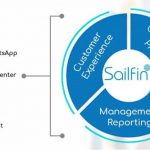Mar
Are we loosing good consultants in the Salesforce ecosystem?

With so many players entering into the foray without proper planning and strategy, the implementations become a challenge without a good consultant who can drive things from business and technical stand point and bring together two team to talk to each other.
I have worked with some customers who have burnt their hands once because of wrong guidance from their past consultants and that makes them over cautious now. They probe every move and adds to the complexity of the once failed and short on time project. If the consultant had guided them well in the first instance their experience on the Salesforce platform would have been great and their business must have flourished well.
Lets take a look at some of the inherent challenges: No probing on business requirements The problem partially lies in acceptance of business requirements as is without probing the end results and looking for alternates. There are always good alternates which may work well for a customer but consultants often do not clarify that with the customers, and this results in design flaws and usability challenges. Insufficient time to upgrade with platform changes Salesforce platform is changing so rapidly that it is becoming more challenging to keep yourself updated with all new features being added with every release. This results in consultants with partially cooked information guiding customers for their implementation strategies. Business Communication This is becoming more challenging now since customers are over reliant on the consultants and sometimes do not prepare well for the requirements discussions. It is expected that the consultants would fetch the right requirements from the customers by asking the right questions. This is fine in principle but if the consultant does not ask the right questions the entire implementation results in either failure, cost overrun or huge delay in timelines. None of this is acceptable by the customers. Pro-activeness With consultants being involved in multiple projects at the same time they tend to lose the art of talking to customers before things get worse. A well-informed customer is a happy customer. Even if it is a bad news customers would like to hear it ASAP so that they can take corrective actions on their side. If a consultant delays this communication it may result in complete lack of trust. Business to Technology Transition This is the most important factor of any successful implementation. Even if you don’t understand the basics of a customer’s business you must still be able to translate that effectively for a technology solution. The minute details are often missed to capture during conversations, follow-ups for better clarity are not done on time, assumptions are not clarified and constraints are not highlighted. This results in critical features missing from the proposed solution and again an unhappy customer who feels like in the middle of hot soup with nowhere to go.
At the end of day I feel that good consultants are rare to find in the heavily crowded Salesforce human resources market and if you are one of them, you are set to stay at the top of game for a long time.
Cheers!













